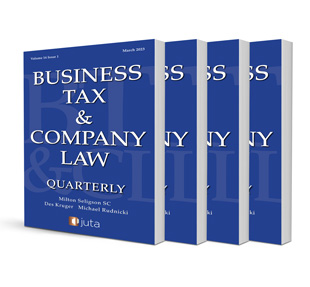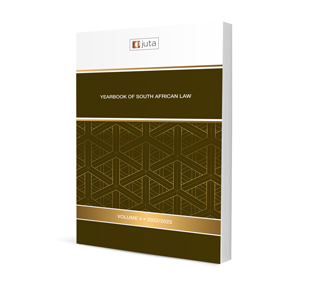VAT, Indemnity Payments and Capitec Bank: The Good, the Bad and the Ugly (Part 1)

VAT, Indemnity Payments and Capitec Bank: The Good, the Bad and the Ugly (Part 1)
Author: Des Kruger
ISSN: 2219-1585
Affiliations: Independent Consultant
Source: Business Tax & Company Law Quarterly, Volume 15 Issue 2, 2024, p. 1 – 14
Abstract
The recent Constitutional Court decision in Capitec Bank Limited v Commissioner for the South African Revenue Service is seminal, but is, with respect, unfortunately wrongly decided (the bad). That said, Rogers J, in a unanimous judgment, has provided clarity in regard to a number of VAT provisions (the good and the bad), most notable the treatment of a supply for no consideration and the application for apportionment outside the ambit of the Value- Added Tax Act, 1991 (VAT Act), amongst others. In essence Capitec Bank sought a deduction under section 16(3)(c) of the VAT Act of amounts credited to borrowers accounts under a loan cover arrangement on the happening of specified events, namely the death or retrenchment of the borrower. Capitec Bank has essentially undertaken to apply the claim proceeds derived by it under a credit life policy entered into with an insurer against the indebtedness of the borrower on his or her death or retrenchment. Section 16(3)(c) provides for a deduction against a vendor’s output tax of any amounts paid to a person to indemnify that person under a ‘contract of ‘insurance’. The deduction is equal to the tax fraction (15/115) of such indemnity payments. Importantly, the deduction is only available if the ‘contract of insurance’ under which the payments are made is a taxable supply. SARS sought to disallow the deduction on the grounds that the ‘contract of insurance’ was not a taxable supply as it was not a supply made in the course or furtherance of any ‘enterprise’ carried on by the bank. SARS argued that as no consideration was charged for the loan cover, it could not be said that Capitec Bank was carrying on an enterprise in relation to its loan cover activities. In addition, SARS argued that the loan cover was so closely connected to its exempt activity of providing loans (an exempt supply), that the provision of the loan cover similarly constituted an exempt supply. An exempt supply is specifically excluded from the ambit of the definition of ‘enterprise’. Capitec Bank naturally sought to counter such arguments by submitting that the supply of the loan cover free-of-charge did not disqualify the supply as being a taxable supply, relying, inter alia, on the provisions of section 10(23) of the VAT Act. As regards the argument by SARS that the supply of the loan cover was an exempt supply, Capitec Bank argued that the loan cover related to its overall business that comprised both exempt (loans) and taxable (fee) activities and as such was not in itself an exempt supply.
